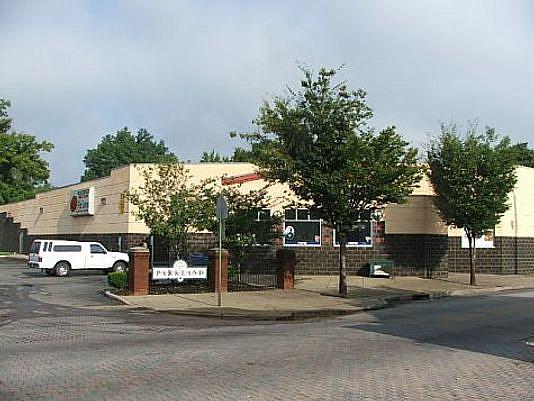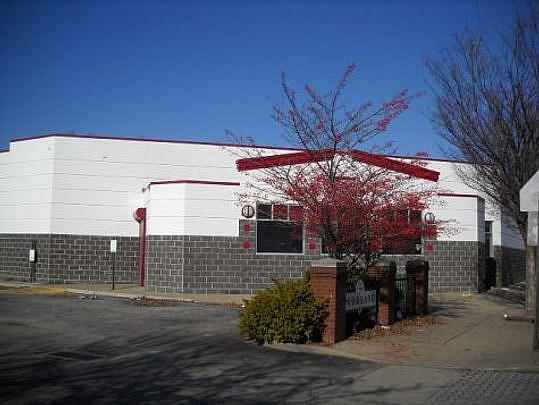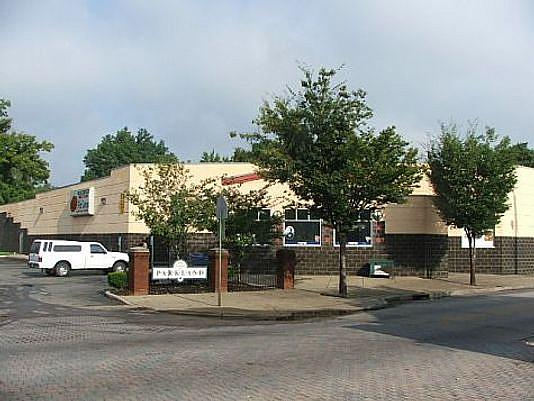Dare to Care relocation may bring job training, grocery to the West End
This story was produced as a project for the 2018 National Fellowship, a program of USC Annenberg's Center for Health Journalism.
Other stories in this series include:
Tell us: How do you get food where you live in Louisville?
Dare to Care relocation may bring job training, grocery to the West End
Shelby Park's Save-A-Lot closed with little warning to neighbors
Sorry, we're closed: How everyone is hurt when grocery stores shut down
In 30 seconds: What you should know about food deserts in Louisville
Tuition or food? How college kids use food pantries to help food insecurity
Louisville has a fresh food problem. Can we fix it?
'A real crisis in Louisville': Readers respond to food desert series
How a low-income Louisville neighborhood became a fresh food oasis
How can cities end food deserts? Here are 4 solutions that worked
Louisville families shouldn't be struggling to find fresh food
No grocery store in your neighborhood? Join forces to create one
People can't get to a grocery store easily. So these volunteers are driving them
Would you shop at a mobile grocery store? Kroger is betting on it
Where You Live Determines How Much Your Eggs Cost at Kroger
How some residents get their food in Louisville's food deserts
Louisville's vacant grocery stores find new tenants. But they won't sell food
How these Louisville companies are helping employees buy affordable fresh produce
Can indoor farming fix food deserts? These Louisville students think so
Kentucky's hunger initiative earns national attention. But thousands still need food
Downtown Louisville is growing rapidly. So why doesn't it have a grocery store?
Is crime driving grocery stores out of Louisville's low-income communities?
Louisville kids are still at risk for lead poisoning. Here's how healthy eating can help
When will downtown Louisville get a grocery store? Here's what we found
Everything you need to know about Kroger's mobile grocery store in Louisville
Kroger's mobile market brings fresh food to Louisville neighborhoods without access
This nonprofit leader is giving west Louisville the black-owned grocery it 'deserves'

(Photo: Jefferson County/PVA)
For 12 years, Parkland residents have watched a once thriving grocery store become a burden on the neighborhood's main commercial corridor, forming an expansive hole they thought might never be filled.
But where they once saw an eyesore, neighbors now see opportunity — thanks to a proposed investment from Dare to Care Food Bank.
On Thursday, representatives of the local nonprofit met with community members to discuss a potential takeover of the 24,000-square-foot building, located at the corner of 28th Street and Virginia Avenue. The site would be home to the nonprofit's commercial kitchen and could potentially include a small grocery store.
Dare to Care employees have been searching for a new space for its commercial kitchen for about a year, executive director Brian Riendeau said. And they think they've found it in the city-owned Parkland building.
The food bank's current kitchen is located within a nondescript building in Butchertown, where seven employees produce meals for 36 Dare to Care Kids Cafes, which provide hot, nutritious meals to children at partner sites such as YMCAs and Boys and Girls Clubs.
The nonprofit can now feed 1,200 kids five days a week, Riendeau said, but an expansion could allow it to feed another 700 youths — along with up to 2,000 low-income seniors.
Dare to Care Food Bank has initiated plans to move its production kitchen and administrative offices to the former Parkland Grocery store building at 1200 S. 28th St. (Photo: Jefferson County/PVA)
"We fell on the Parkland location because it's ideally located in terms of relevance to existing Kids Cafes," Riendeau said. "And it's a large empty shell, which lends itself to a build out to suit our needs."
"We see it as an innovation center and a platform for future programming to help us really take it to the next level in addressing the issues of food access and food insecurity."
As of 2016, nearly 16 percent of Jefferson County residents were considered food insecure — meaning they didn't always have the resources they needed to maintain a healthy diet, according to the most recent report from Feeding America, a nonprofit that leads a nationwide network of food banks.
In large parts of west Louisville, food insecurity affects residents who experience higher rates of poverty and have fewer stores to choose from when shopping for fresh fruits and vegetables.
At its new building, Dare to Care hopes to address food insecurity by implementing a culinary training program that could increase incomes and by potentially launching an affordable market that could fill the area's healthy food gap.
"Increasingly, we have recognized that our clients have money to spend on food as well," Riendeau said. "What is Dare to Care's role in providing affordable food at times that are convenient for our clients?"
Dare to Care has already partnered with Catholic Charities to take on its Common Table program, which certifies people to work in the food industry, Riendeau said. The food bank plans to build a training kitchen in its new space, and students in the program will help make meals for the Kids Cafes.
Plans for a food market are less firm. On Thursday, Riendeau said Dare to Care has considered starting a mobile market that could travel between neighborhoods, selling produce, meats and other basic items.
But the nonprofit has also reserved about 4,000 square feet of its building design for a potential grocery store — if the community decides that's what it needs the most.
Dare to Care Food Bank has proposed relocating its commercial kitchen to the former Parkland grocery building. Its new space will include a training kitchen and potential grocery store. (Photo:Dare to Care)
"One of our priorities in this project is to make sure our vision for this building is aligned with the vision of the residents of Parkland," Riendeau said. "We're going to be talking to a lot of people in the coming months to make sure we get that right."
Metro Councilwoman Jessica Green, D-1st, called Dare to Care's proposal a "home run" and said it fits exactly what she's heard the community wants.
Rev. Matthew Smyzer, executive director of the Baptist Fellowship Center, 1351 Catalpa St., echoed her statement.
"I want to say thank you for considering and understanding the value of this community that you feel compelled to bring your administrative offices along with your kitchen here," Smyzer told Riendeau. "It feels so right, simply because the building you're going into historically started as a grocery store that sold food and it reopened as a meat store that sold food.
"For it to sit idle for 12 years and to be resurrected for food, I think it's fulfilling its purpose."
Riendeau said the city has offered to lease the building to Dare to Care for $1 a year, and the nonprofit's board of directors is expected to approve the deal in December.
Dare to Care would invest up to $3 million in renovating the building, and if everything goes as planned, the new commercial kitchen could open in early 2020.
The Courier Journal's continued coverage of food insecurity in Louisville is supported by the University of Southern California Center for Health Journalism's 2018 National Fellowship.
Bailey Loosemore: 502-582-4646; bloosemore@courier-journal.com; Twitter: @bloosemore. Support strong local journalism by subscribing today: https://www.courier-journal.com/baileyl.
[This story was originally published by Courier Journal.]

